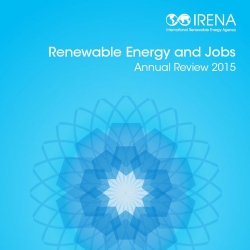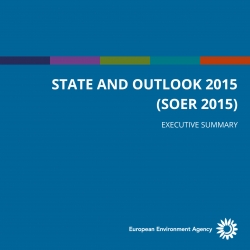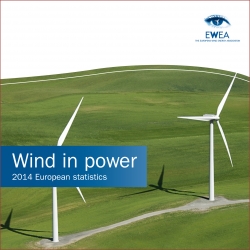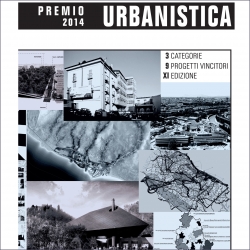Supplement of URBANISTICA 153
NOVEMBER 2014
edited by Valentina Cosmi
The winning projects are evidence of the direction in which it moves Italian planning. Almost everyone, in fact, bee concerned with the emerging issues of urban regeneration, such as the reuse of industrial areas, rail and port abandoned, intervention on public spaces of historic cities, the new policies of social inclusion.
The Italian planning is becoming less engaged with plans to control the expansion or large transformation projects of the city.The long economic and finantial crisis forced it to be more selective and to make it compatible with a strategic vision that…
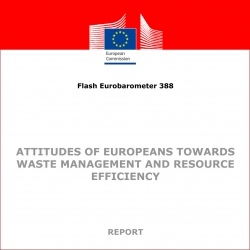
Conducted by TNS Political & Social at the request of the European Commission, Directorate-General for the Environment
JUNE 2014
co-ordinated by the European Commission, Directorate-General for Communication
Resource efficiency and waste management are key elements of EU environmental policy and the Europe 2020 strategy. It is essential to get a clear picture of citizens’ attitudes on these topics, throughout all Member States, in order to better guide policy making in these fields.
This survey seeks to understand citizens’ perceptions, attitudes and practices related to efficient use of resources, generation and management of waste, as well as elements of the so-called “circular economy” (including…
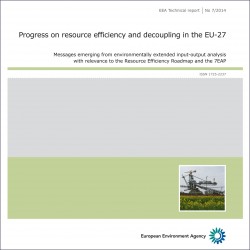
EUROPEAN ENVIRONMENT AGENCY | TECHNICAL REPORT
LUGLIO 2014
Messages emerging from environmentally extended input-output analysis with relevance to the Resource Efficiency Roadmap and the 7EA.
《This short report, consisting of a series of key messages, was prepared to illustrate ways in which input-output-based analysis can support policy makers in their decisions and choices. It follows up on the 2013 EEA report on environmental pressures from European consumption and production which describes the methodology of environmentally extended input-output analysis, illustrated with some country examples … 》
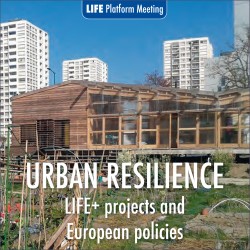
LIFE | PLATFORM MEETING
APRIL 2014
Summary report.
《Urban resilience can be defined as the ability of an urban territory/community exposed to hazards such as Climate Change, disaster, economic and social poverty, to resist, absorb, accommodate to and recover from these. A resilient approach addresses the following stakes:
– Reduction of the environmental impacts of the cities/territories (pollution/wastes)
– Mitigation/Adaptation to climate change
– Answer to economic and social issues … 》
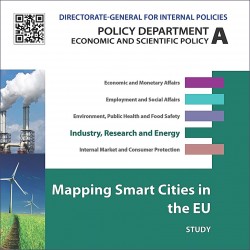
EUROPEAN PARLIAMENT | COMMISSION ON INDUSTRY, RESEARCH AND ENERGY
JANUARY 2014
Directorate general for internal policies – Policy Department A: Economic and scientific Policy
《This report was commissioned to provide background information and advice on Smart Cities in the European Union (EU) and to explain how existing mechanisms perform. In exploring this, a working definition of a Smart City is established and the cities fitting this definition across the Member States are mapped. An analysis of the objectives and Europe 2020 targets of Smart City initiatives finds that despite their early stage of development, Smart City objectives should be more explicit, well defined and clearly aligned to city development, innovation plans…
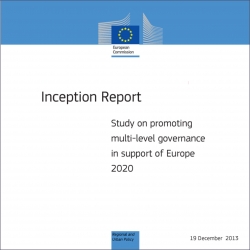
EUROPEAN COMMISSION | Regional and Urban Policy
JULY 2014
a cura di: Kai Böhme, Sabine Zillmer, Sofie Jæger & Frank Holstein (Spatial Foresight) Lisa Hörnström, Alex Dubois & Stefanie Lange-Scherbenske (Nordregio)
《The aim of this study on promoting multi-level governance in support of Europe 2020 is to generate lessons learned from existing experience and to stimulate the learning and transfer between regions. The study focuses on both the analysis and facilitation of transfer processes.
This is a revised version of the Inception Report of the DG Regio study on promoting multilevel governance in support of Europe 2020,
